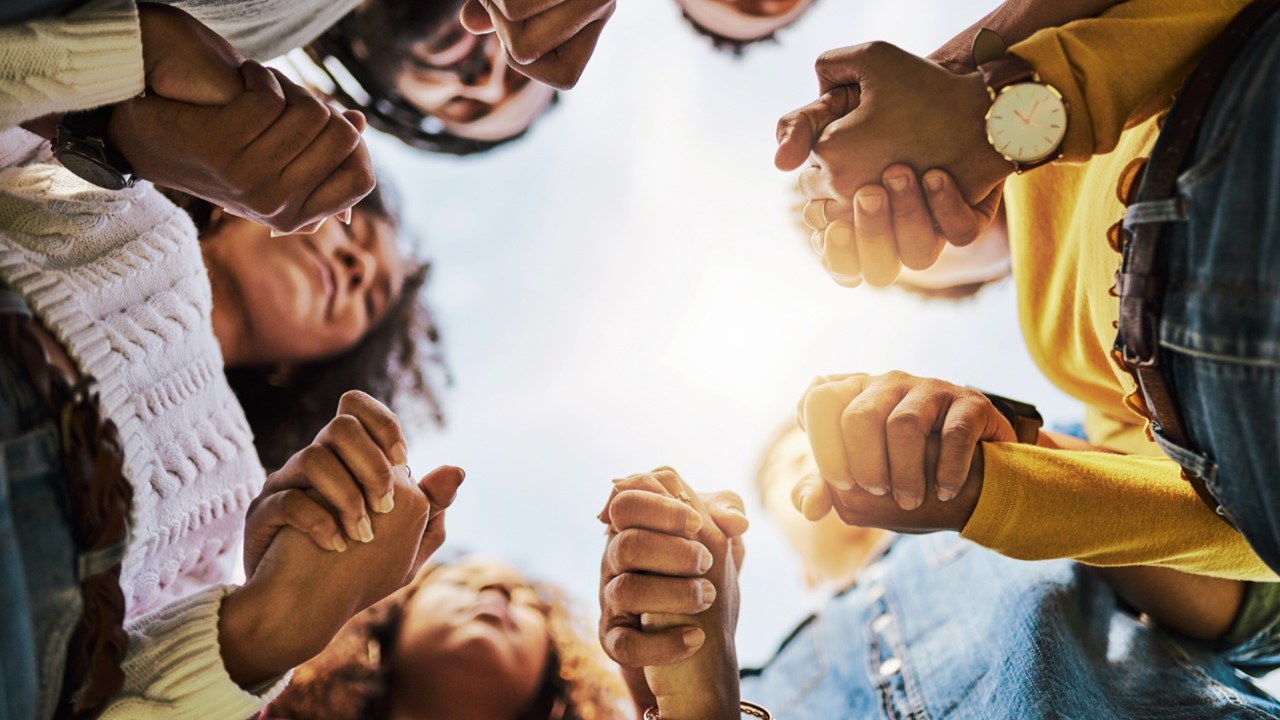COVID-19 Story Tip: Be Your Brother’s Keeper: Steps for faith-based communities to reopen safely

Faith-based communities should work together to follow steps for reopening safely. Credit: Getty Images
In 2020, COVID-19 placed an abrupt halt to in-person religious gatherings, shuttering churches, mosques, temples and other places of worship. As the world inches toward reopening facilities and loosening restrictions on indoor and outdoor gatherings, religious leaders and infectious disease experts at Johns Hopkins Medicine are collaborating with Baltimore’s Mayor Brandon M. Scott and the Baltimore City Health Department to determine the safest ways to gather once more.
Experts Lisa Cooper, M.D., M.P.H., Panagis Galiatsatos, M.D., M.H.S., Sherita Golden, M.D., M.H.S., and Lisa Maragakis, M.D., M.P.H., participated in a Baltimore City Health Department webinar held with Baltimore’s church leaders to offer guidance for places of worship looking to open their doors. They recommend the following steps, which could be applicable to faith-based organizations around the country and internationally:
· Designate members of the congregation to stay up to date on COVID-19 information. These people will serve as liaisons to disseminate COVID-19 information to the congregation. These liaisons are not scientific or medical experts, but can inform the congregation on local and state health department policy updates and changing CDC guidelines.
· Keep COVID-19 out by avoiding its spread in facilities. Continue support for the community to get vaccinated, wear masks, practice hand hygiene and physical distancing, and stay home if experiencing COVID-19 symptoms. Mandate face masks when gathering indoors. Have hand sanitizer available for church members.
· Keep good records to facilitate contact tracing. Keep names and phone numbers of congregation members who visit specific facilities for services. Have members who contract COVID-19 contact the congregation’s leadership. This helps leaders contact members who may have encountered the person who contracted COVID-19.
· Prepare. Before allowing any gatherings, have a planning committee finalize all the details needed to congregate in person. Map out contact tracing record-keeping stations, hand sanitizer locations, greeters to provide masks and other key details. Determine the safest way to conduct ceremonies such as communion, baptisms and britot, including limiting attendance.
· Mandate masking in groups with unvaccinated individuals. People still need time to get vaccinated, and there are populations, such as children younger than 12, who are not yet eligible for the COVID-19 vaccines. In smaller groups, like a prayer group, where everyone has been vaccinated, individuals may choose not to wear a mask.
· Physical distancing is still important. Members should be at least 6 feet apart, especially at times when members are shouting or singing. Consider adjustments that can aid physical distancing; for example, use smaller choirs who can stand far apart or blow the shofar away from the congregation.
· Keeping doors and windows open is a great way to enhance airflow, thus reducing the risk of spread.
· Disinfect high-touch surfaces like bathrooms, door handles and railings at least once a day. Do a deep clean if a member is found to have contracted COVID-19.
· Put signs up clearly communicating COVID-19 precaution expectations.
· Encourage volunteers in day care, the transportation team and other highly interactive roles to become vaccinated. Encourage hand hygiene, physical distancing and mask-wearing as well.
COVID-19 precautions are not the only considerations for religious groups reopening their doors. The world is anxious to return to practices that were common before the pandemic, but for many, life after COVID-19 will never be the same. Many COVID-19 survivors are still grappling with long-term symptoms, and members may be grieving the loss of loved ones, struggling to cope with pandemic fatigue or dealing with job loss.
· Faith-based communities should let COVID-19 survivors know that they are available as a resource.
· Add mental health to health ministries, and learn how to recognize and respond to COVID-related mental health issues, as well as others. Identify resources in the community, and work to destigmatize seeking help.
Overall, religious groups should continue to offer services like food and shelter, and partner with public health professionals as well as schools and other community spaces. Faith-based communities are among the front lines of lifesaving information and bridge-building between communities.
Galiatsatos is available for interviews.